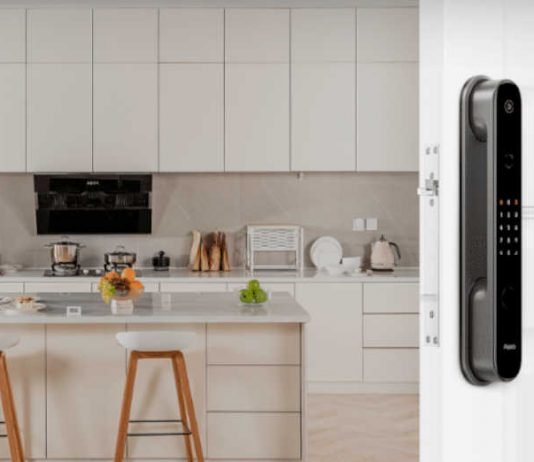In the quest to enhance the convenience and security of homes and offices, the integration of technology into everyday life has taken a pivotal role. Among the many innovations, the Smart Door Lock stands out, evolving from a futuristic dream into a present-day reality. This article delves into the rise of intelligent door systems, unpacking their features, benefits, and the science behind them.
Over the last decade, technological advancements have pervaded numerous sectors. From smartphones to smart homes, technology’s touch is omnipresent. Citing a report from Statista, in 2019, the global smart lock market was valued at approximately 1.2 billion U.S. dollars and is projected to more than double by 2023. Such figures are a testament to their growing popularity and adoption.
Contents
So, what is a Smart Door Lock?
A Smart Door Lock is an electromechanical lock that is programmed to lock and open when it receives instructions from an authorized device via a wireless protocol and cryptographic key. These locks, unlike traditional locks that rely primarily on metal keys, can be operated by cell phones, voice commands, or even biometric recognition.
Features & Benefits
1. Enhanced Security:
The primary advantage of these intelligent systems is the enhanced security they offer. Traditional keys can be easily duplicated or lost, creating security vulnerabilities. Smart Door Locks, however, provide encrypted keys that are difficult to hack. Moreover, they can alert homeowners in real time about any unauthorized attempts.
2. Convenience:
Imagine not having to fumble for keys in a dark alley or when your hands are full. These locks offer keyless entry, some even providing the capability of remote access, ensuring that homeowners can control their locks from anywhere in the world.
3. Access Control:
Smart Door Systems allow homeowners to grant temporary or permanent access to visitors. Whether it’s for a family member or a housekeeper, distinct access codes or virtual “eKeys” can be assigned and later revoked.
4. Integration with Other Smart Devices:
Many smart locks seamlessly integrate with home automation systems. This means your door can unlock automatically when your smart thermostat detects your home or turn on the hallway lights when the door is unlocked.
5. Tracking & Monitoring:
With built-in Wi-Fi or Bluetooth capabilities, these systems can log who comes and goes, providing homeowners with a clear record of entry and exit times.
The Science Behind It
Most Smart Door Locks use a combination of Bluetooth, Wi-Fi, and Z-Wave technologies. The use of these wireless communication protocols ensures that the locks can connect with cellphones or central home automation systems. Biometric characteristics, such as fingerprint or facial identification, are included in advanced versions.
Adapting to Consumer Needs
Smart Door Lock makers are catering to the aesthetic desires of consumers in addition to the basic functions of protection and convenience. To suit varied architectural styles, contemporary designs, a wide range of finishes, and streamlined interfaces are offered. This enables homeowners to strike a balance between retaining the aesthetic appeal of their home and improving its security. Companies such as Yale and Schlage, for example, have developed smart locks that not only give superior protection but also improve the aesthetics of one’s front door. Such concerns are critical to securing widespread consumer adoption.
Challenges and the Road Ahead
Smart Door Locks, like any growing technology, have obstacles. Concerns have been made about hacking, battery life, and compatibility concerns with specific door kinds. However, like with any technology, ongoing advancements are made.
Manufacturers are investing in research and development to tackle these issues and ensure that these intelligent systems become flawless. According to Global Market Insights, improvements in IoT and the growing trend toward the smart home ecosystem are projected to give ample chances for market expansion.
Furthermore, the built-in security safeguards ensure the integrity of the data. The rolling code feature, for example, ensures that the lock creates a fresh code after each usage, preventing possible hackers from accessing an old code. Because security codes are dynamic, they are extremely difficult to crack.
To summarize, the landscape of home security is certainly changing, with Smart Door Locks leading the way. Their fusion of technology, design, and customer preference highlights a trend in innovation: the best technological developments respond to numerous dimensions of consumer requirements rather than just one. The global diversity in adoption also serves as a reminder that, while technology is universal, its implementation must be localized. As we adapt and evolve in this digital age, it’s evident that our houses, our sanctuaries, are becoming smarter, safer, and more in touch with our modern lifestyles.


